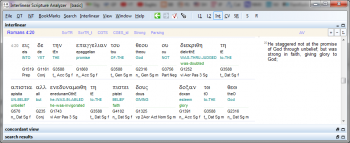I disagree what you accredit to man I accredit to God.
You disagree because you separate Christ from His Church (that has men in it). The Bible doesn't do that.
You are wrong to equate the common man with being ignorant and unstable. Humans are not all knowing and therefore, inherently ignorant to a certain degree.
Peter is not equating the common man, he is talking about ignorant and unstable Christians who twist and distort Paul's letters to their own destruction.
What distinguished the Catholic reformers of the 16th century from the Protestants was their method. The Protestants thought that they had a way of knowing the doctrines and practices of the Apostolic Church without recourse to the Church's magisterium, which they believed was discredited.
Their recourse was to literary analysis. It is part of the Protestant tradition to suspend judgment on doctrine until the individual is satisfied that he can find it in the Scriptures, for "the whole counsel of God, concerning all things necessary for his own glory, man's salvation, faith and life is either expressly set down in Scripture, or by good and necessary consequence may be deduced from Scripture" (WCF 1:6).
No religious teacher, not even the Church, deserves credence unless he teaches what the reader, enlightened by the Spirit, finds in the Scriptures. The believer therefore must set for himself that this or that doctrine is true. Before he accepts it, he weighs the doctrine in the balance of his own understanding of the Scriptures.
This is just the reverse of the Catholic's approach to belief. As the Catholic sees it, he must accept God on God's terms and not his own, which means to accept it from the hands of God's authorized teacher. It is not for him to "judge" the divine message but only to receive it. The basic difference between Catholic and non-Catholic approach to religious truth is that
the non-Catholic constructs it, while the Catholic receives it so that no construction is called for or even in place of.


